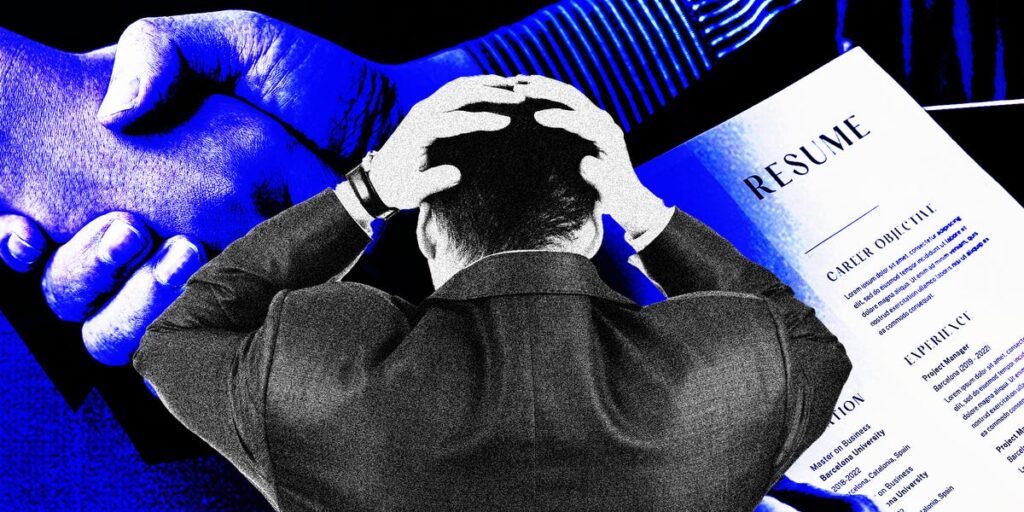The private equity industry’s notoriously chaotic junior hiring process — known for late-night interviews and hasty offers — has long been a point of intrigue on Wall Street. This year, the process is facing renewed scrutiny after JPMorgan Chase cautioned incoming investment bankers about the consequences of skipping training to interview for positions that wouldn’t commence until 2027. Shortly thereafter, Apollo Global Management and General Atlantic announced they would not conduct interviews for 2027 roles this year, raising questions about the future of what’s termed “on-cycle” recruiting.
To shed light on this practice, Business Insider consulted a private equity professional about his own experience in junior recruiting as an investment banker. He recalled the “on-cycle recruiting” period as the most stressful 12 hours of his life, detailing events like being lured into an interview, sneaking away to text a rival firm, and more. Despite his challenges, he believes the process should still exist.
The professional, granted anonymity for candidness, shared his story:
I was away from New York when I realized on-cycle recruiting was kicking off a few years back. I rushed back for a dinner with a rep from a top firm. After some wine, I checked my phone and saw messages about interviews starting, confirming my suspicions about why I was invited out for drinks.
The atmosphere shifted quickly. As we walked to their office, I understood the motive behind the casual dinner. They wanted to assess my skills on a specific LBO model. It became clear that if a firm senses you’re being pursued elsewhere, they’ll try to secure you before the official process starts.
The interview lasted until 2:30 a.m. I received an offer but opted not to accept immediately, as another firm was texting me, urging me to come in for an interview.
Ultimately, at 2:30 a.m., I left the first firm’s office with an offer but didn’t sign it right away. I quickly contacted the second firm’s headhunters, who wanted me in for an interview just hours later.
One hurdle was my recent relationship turmoil; my girlfriend was upset about my potential move from New York. After a heart-wrenching conversation, I got a mere hour and a half of sleep before embarking on the second firm’s interviews.
The second firm’s interviews were progressing well, but the first firm began pressuring me for a decision. I stalled, claiming I needed to consult with my family, but their urgency unfolded quickly—an email ultimatum to accept the offer right away or it would evaporate.
At an inopportune moment, I ducked into the bathroom during the second firm’s interview to negotiate with the first firm on the phone. The backdrop of flushing toilets and sinks amplified the stress of the conversation, as they pushed me to commit.
Eventually, I relented and verbally accepted, leaving me scrambling as I emerged to meet my next interviewer for the second firm.
As I hurriedly explored options to sign the offer, my phone buzzed with frantic messages from the first firm, waiting for my signature as I mentally prepared to head back to the second firm.
In hindsight, that 12-hour stretch was emblematic of the high-pressure nature of on-cycle recruiting. Now, in my current position helping with PE recruiting, I expect similar challenges as the cycle resumes for future associate roles.
While this process encourages applicants to prepare extensively, I also recognize its drawbacks, such as potential biases against late bloomers in the competitive scene.


